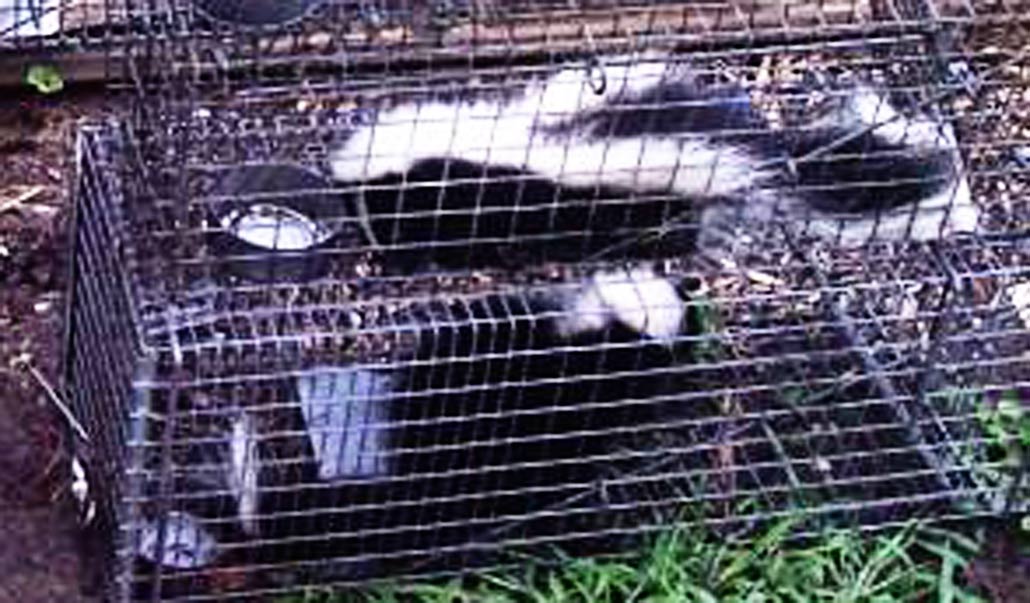Why do Skunks Dig?
If you happen to see a skunk ambling along with his nose close to
the ground some evening, it’s a good bet that before long, it will
be using its long claws to excavate a shallow hole to access a
harvest of grubs, worms or ground-dwelling insects. While these tend
to be its favorites, skunks will eat almost anything, with other
regular quarry including rats, voles, mice, moles, birds and their
eggs, and carcasses as well as a broad range of crawling jumping and
flying insects.

Skunks are born to dig. About the size of a medium-size cat, they
have medium short, strong forelegs ending in long-clawed fee that
are ideal excavators, whether the objective is to harvest a cache of
insects out of the soil or to excavate a burrow.
Usually, skunks’ foraging in lawns or gardens results in holes the
size of divots, a few inches in diameter, with several small,
tell-tale mounds of dirt within a few square yards. But if a skunk
is on a quest for voles or some other small rodent in an area of
rough grass, the damage can be significant.
In the wild, the animals often den up in burrows built and abandoned
by other animals but absent these opportunities, they willingly dig
their own. Similarly, in suburban and urban areas skunks will use
their digging abilities to fashion nests under buildings and even to
access hospitable nesting or den locations by tunneling under
building foundations.
All animals have requirements for food and shelter, but that doesn’t
mean that you have to provide it. Although they are not often seen
during daytime hours and present virtually no threat to humans that
don’t bother them, skunks can be a nuisance. Often they will shelter
in a crawl space or under a porch for a few days and move on, but if
they take up permanent residence, the place may take on their
characteristic odor.
The solution is to pull in the welcome mat and prevent their access
to your property by closing off access to spaces under the house or
outbuildings, first making sure that the animal is out of the den
and not a nested mother. Access holes can be closed off with boards,
hardware cloth, MF-metal flashing or other materials.
And bearing in mind that skunks are hearty diggers, you may want to
install a barrier to prevent their tunneling their way in. Excavate
a narrow, trench two feet deep along the foundation and line it with
hardware cloth bent into an L-shape away from the building, and fill
in the trench. Skunks are persistent, but that should discourage
them enough that they’ll move on.
If you need help, we service the entire USA! Click
here for a wildlife removal specialist in your town!
Go back to the main
Skunk Removal page for
more information about Why do Skunks Dig?.